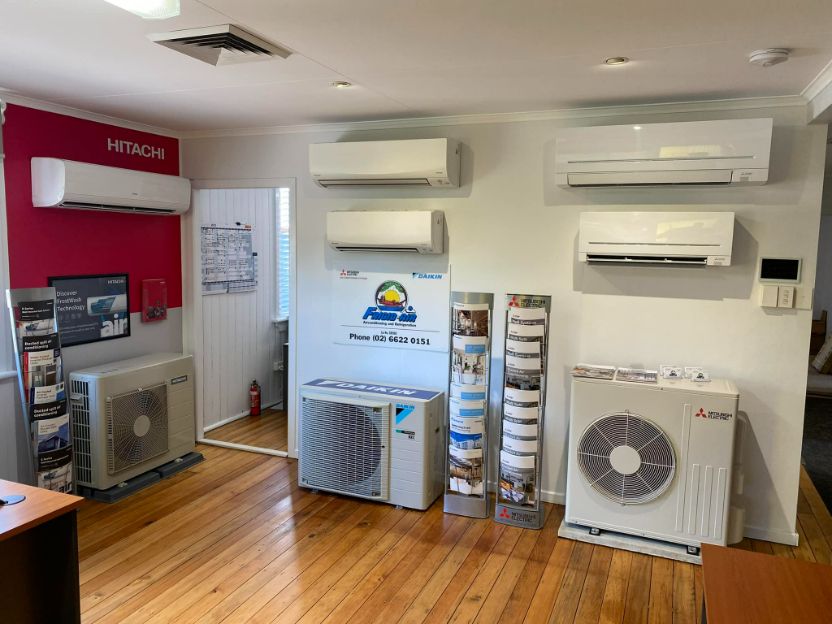How To Choose The Right Air Conditioning System For Your Home
When preparing to select an air conditioning system, the choices can feel overwhelming. You may be picturing sweltering summer days or chilly winter mornings—either way, your goal is to create a comfortable indoor environment all year round.
Whether your home is being renovated, you recently bought a property, or you’re ready to upgrade, making the right decision now can save you money and hassle later. From considering the size of your rooms to energy efficiency, each step shapes your long‑term comfort. Let’s walk you through the process in a clear, practical way.
Consider Your Local Climate Before Selecting a System
Your local weather patterns play a big part in determining which system will perform best. In coastal or humid areas, you might require dehumidification and cooling. If you’re dealing with mild winters, the heating requirements may be as necessary as the cooling.
Here are a few ways your climate influences the choice:
- Choose a system that is designed to handle higher humidity levels if your region experiences lingering moisture during warmer months.
- Select a unit that retains performance even when temperatures rise, rather than one that struggles under heat.
- Prefer a system with efficient heating if winter chill still affects your property, so you can maintain seasonal comfort without installing separate units.
Room Size Matters – Match System Capacity to Your Home
Choosing the correct system size is essential—too small, and it won’t adequately cool or heat; too large, it will cycle on and off frequently, wasting energy and wearing components out sooner.
Think about this when deciding:
- Ensure your system matches the square metreage of your living spaces to provide consistent comfort.
- Factor in insulation levels and window orientation, as these significantly affect how much cooling or heating you need.
- Remember that an appropriately sized system reduces running costs and supports long‑term reliability, which is far more valuable than a cheaper, oversized unit.
Split System or Ducted? Know the Key Differences
Choosing between a split‑system and a ducted system can influence aesthetics and functionality.
Split‑system:
- Typically, it offers targeted heating and cooling to specific rooms, allowing you to adjust temperatures independently. This helps save energy when only certain areas are in use.
- Tends to be easier and less intrusive to install, perfect if you’re not undergoing major renovation work.
Ducted system:
- Distributes air throughout your home via concealed ductwork, providing a seamless look with a single control.
- Gives uniform heating and cooling and can incorporate zoning, so you still maintain control over different areas while achieving whole‑house comfort.
Reverse Cycle Units – Year‑Round Comfort in One System
Reverse‑cycle systems offer a significant advantage because they handle heating and cooling, meaning you don’t require separate appliances.
In particular, consider that:
- You can instantly switch between warm and cool modes, saving floor space and installation complexity.
- Modern reverse‑cycle units offer better energy efficiency than separate heating and cooling systems.
- You will enjoy consistent comfort throughout changing seasons, making them ideal for homeowners looking for an all‑in‑one climate solution.
Prioritise Energy Efficiency Ratings for Long‑Term Savings
Investing in energy‑efficient technology may cost more up front, but the long‑term benefits are substantial, particularly in areas with extreme weather or rising energy costs.
To evaluate this effectively, consider:
- Looking for systems with high energy‑rating stars or inverter technology to ensure they operate at peak efficiency when cooling or heating.
- Assess efficiency by specifications and real‑world performance in your local climate, meaning some models fare better under sustained heat or humidity.
- Viewing upfront costs as an investment, because over time you’ll recoup what you pay through lower energy bills and reduced wear and tear.
Smart Controls & Lifestyle Integration
Modern air conditioning systems often have smart features that allow you to tailor comfort to your lifestyle—whether that’s via apps, voice commands, or zoning.
Here’s how those innovations can benefit you:
- You can adjust temperature settings remotely using a smartphone, so you always come home to a comfortable environment.
- You could programme schedules to run only when you're home, reducing energy waste and ensuring comfort when needed.
- Integration with smart home platforms lets you link climate control with other systems—so lighting, window blinds, or occupancy sensors can work together for optimal comfort and efficiency.
Factor in Maintenance & Accessibility
All air conditioning systems will require maintenance to maintain peak performance and longevity. Planning for this at the outset can save money and enhance reliability.
Be sure to consider:
- Choosing a system with easily accessible filters for cleaning or replacement, because regular maintenance keeps air quality high and performance stable.
- Ensuring your installer can reach essential parts without too much disruption, whether it’s indoor units or ductwork.
- Arranging ongoing servicing not only keeps the system operating efficiently but may also maintain warranty coverage and reduce unexpected repair costs.
Professional Installation Makes All the Difference
No matter how well you research, your system's effectiveness will depend heavily on proper installation. Professional workmanship ensures your system performs as intended and lasts longer.
It’s essential to keep in mind:
- An accurate load calculation based on your home’s layout, insulation, and orientation ensures the system matches your needs precisely.
- High‑quality installation helps prevent refrigerant leaks, inefficient placement, noise problems, or poor drainage setup.
- Professional installers can advise on the most suitable location for indoor and outdoor units, and design any required ducting to ensure even and efficient airflow throughout the home.
Bringing It All Together
By following these steps—from assessing climate and sizing to comparing system types, focusing on efficiency, embracing smart features, planning for maintenance, and choosing a professional installer—you’ll be well placed to select the ideal air conditioning system. Applying these considerations ensures that once installed, your home stays comfortable, energy‑efficient, and reliable throughout the year.
If you’re searching for advice on how to choose air conditioner options that suit your specific needs, you’re not alone. With so many models and features on the market, it helps to speak with professionals who understand the technical details and can help you simplify your decision.
Whether you’re upgrading or replacing a system, it’s worth noting that customers exploring air conditioning in Lismore or looking for reliable air conditioning in Byron Bay often prioritise energy efficiency, quiet operation, and tailored service.
Get Help with Your Air Conditioning Decision
At Frigid-Air PTY Ltd, we provide practical, tailored guidance that reflects your home’s needs and lifestyle. From split systems to reverse-cycle options, we can assess your living spaces, recommend the right solution, and ensure a professional installation that delivers lasting comfort and efficiency.
Our team is committed to helping you make a confident and informed decision about your air conditioning system. Get in touch with us via our contact page to book a consultation.














